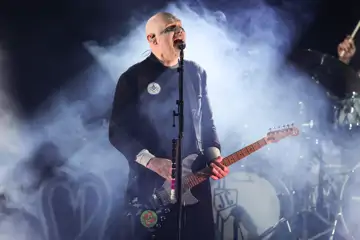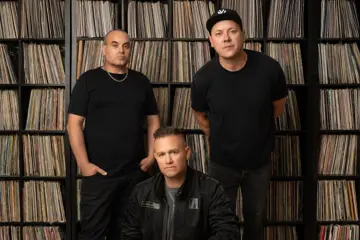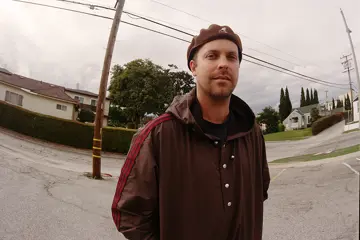Emma’s Nose runs at La Boite Theatre from February 21 to March 16.
When I heard Paul Livingstone was in town working on a play, I immediately assumed he was working as an actor. I was wrong. Perhaps best known in recent years as comedian Flacco, a Good News Week regular, Livingstone has now turned his hand to writing. The result it Emma’s Nose, his first production.
“It’s a complete change from Television. I’m not appearing, for a start,” he laughs. “Television was always about two minutes of work once a week. That was the job. This is trying to maintain people’s attention for an hour while not being there.”
Perhaps not too difficult a task considering the subject matter behind Emma’s Nose.
“It’s actually a true story based on more or less 284 letters written from Sigmund Freud to a German ear nose and throat surgeon called Wilhelm Fliess. They were released in 1985. These are Freud’s letters to Fliess, when he was in his 30s and still forming his ideas.”
“Fleiss was a maniac, basically. He was insane. He believed he could cure any ailment or illness but operating on the nose. Bit of cocaine when you’re done and it’s all ok. There are no letters from Fliess to Freud. Frued burnt them all, but Fliess’ widdow kept all of Freud’s letters. They’re really interesting in that it’s looking at two men with obsessional mindsets. Freud idolised Fliess, basically. Fliess had all the physical answers while Freud has all these metaphysical answers for things.”
Don't miss a beat with our FREE daily newsletter
“There was a patient in the letters who Freud wanted Fleiss to operate on for hysteria. Fleiss had operated on Freud a couple of times, once for fear of travel and once for heart palpitations,” he jokes. “I’m cured, I’m cured. Absolute madness. Anyway, Fleiss operates on Emma, goes back to Germany and she starts to haemorrhage and almost dies. Freud brings in another doctor and they find half a metre of gauze still inside her nose. The letters are about them justifying what happened to Emma.”
Medical malpractice aside, was the writing of the production a conscious effort on your behalf to move away from the Flacco character?
“Yeah, but I didn’t succeed. Even when I read it I think I couple play any of the parts. After twenty years of writing for myself you can’t really get away from it. I wish I’d been writing for twenty years and getting someone else to play Flacco. That would have saved a lot of humiliation, basically, which is the life of a comedian. Now I can sit back and watch other people get humiliated for me.”
“This was the first time I’d written a play, so I’m still trying to work out where the fun actually is in the whole process. I’ve written it, I can hand it over too the actors and the director and they’re all having fun with it, and I’m like a spare prick. You’ve not allowed to tread on people’s toes and I’ve got my idea of the production, and it’s completely different.”
“That’s what I found hardest the first time it was produced, I didn’t recognise it at all. That’s what’s the hardest thing about writing plays; it’s not actually your production. You’ve writing an opportunity for someone else to indulge their ideas, so I don’t really know why I did it.”
Is it a difficult process for you to let go of something you’re that close to and allow someone else to interpret it?
“It’s extraordinarily difficult, and I don’t think you really can. But my idea’s maybe wouldn’t work for the show, because other people’s ideas seem to be working very well. You have to bite your lip and trust they know what they’re doing.”
Likewise can be said about the staging of the show as well as the actor’s liberties with the characterisation.
“There’s a giant nose there. Good. There’s a Freudian couch there. OK. It’s on a railway track that goes into the nose. Right. The whole thing’s going to be on water. OK. I didn’t write any of that,” he laughs. “I just wrote about two guys sitting on milk crates in a bare room…”
“You’ve just got to accept that if you write a play, and it gets it’s own legs, it’s going to be performed by a lot of different people. You’ve got to accept some of those performances are going to be shithouse, but some of them are going to be really good, and you’ve just got to be happy it’s being done.”
















